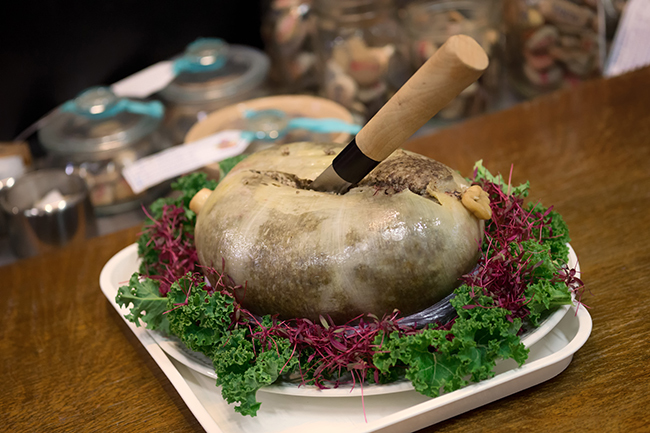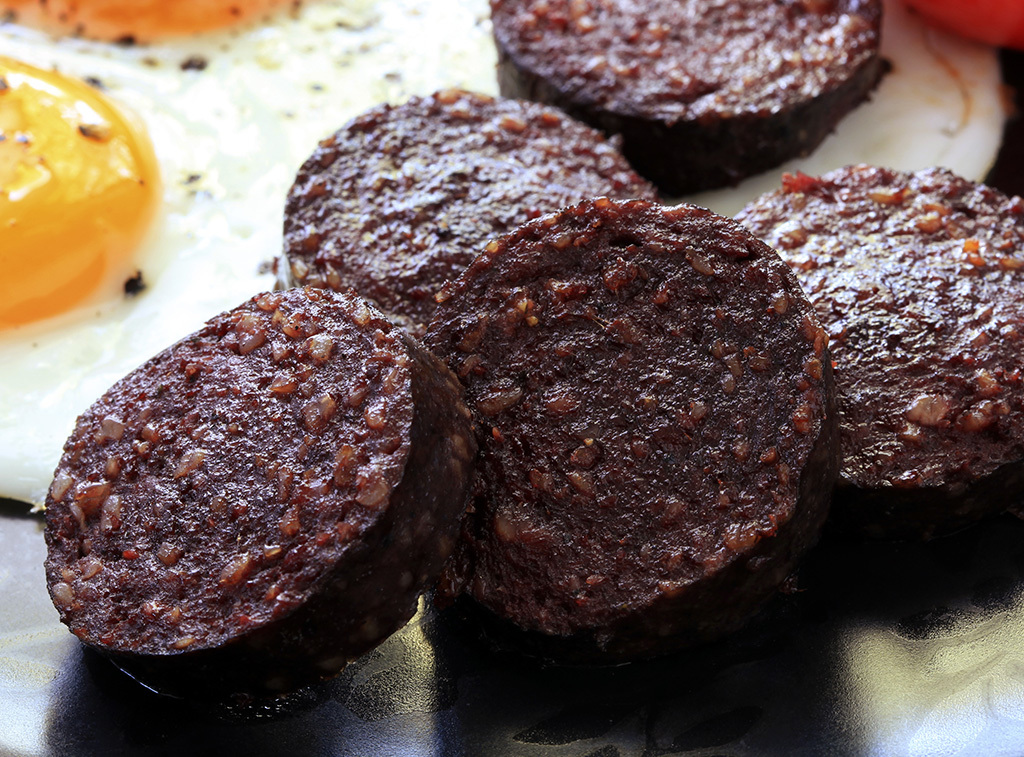Haggis, black pudding and Irn Bru are three Scottish food favourites which have been banned around the world.
The idea of ‘banning’ certain foods is nothing new.
We all remember when Jamie Oliver famously had Turkey Twizzlers taken off the school-dinner menu, and the E-numbers backlash of the noughties. But these aren’t the only examples, as a whole host of foods have been taken off the shelves for a variety of reasons.
Blaming everything from poisonous contents and concerns over genetically modified food, to issues with gravity, governments of the world are getting serious when it comes to what we should and shouldn’t be eating.
Here, we look at some of the most unusual (and in some cases dangerous) examples from around the globe.
1. Irn Bru
Banned in Canada. Along with Penguin biscuits and Marmite, Irn Bru was banned by the Canadian Food Inspection Agency for being “enriched with vitamins and minerals.”
2. Haggis
Banned in the USA. Haggis has been banned in the States since 1971, when the Department of Agriculture ruled against the consumption of livestock’s lungs. This ruling continues to be in effect today.
3. Black pudding
Banned in the USA. Black pudding is banned in America for sanitary reasons. Other ‘blood cakes’, such as the ti-hoeh-koe from Taiwan are also banned. The Scottish Government has confirmed talks are in place and hope it can be lifted soon.

Haggis is banned in the USA
4. Farm-raised salmon
Banned in Australia and New Zealand. Farmed salmon are often raised on genetically engineered grains and synthetic astazanthin made from petrochemicals to give the salmon its bright pinkish colour. These chemicals haven’t been approved for human consumption and could damage eyesight, which is why the farmed fish is banned in Australia in New Zealand.
5. Foreign cheese
Banned in Russia. in 2014, Russia introduced an import ban on a range of foreign foods, including cheese and meat. Whilst many Russians were initially upset about their lack of foreign cheeses, the ban has seen local businesses take the initiative to create their own versions of the worldwide greats.
6. Tomato ketchup
Banned in France. Ketchup is banned in schools, except once a week when served with fries, due to concersn that pupils may distance themselves from traditional cuisine.
7. Soybeans
Banned in more than half of Europe. Countries such as Austria, Bulgaria, Greece, Hungary and Luxembourg have banned them, because genetically modified soybeans make up more than 90% of all the soybeans grown in the US in 2015. More than half the counties in the EU chose to ban their farmers from growing genetically modified crops.
8. Chewing gum
Banned in Singapore. Chewing gum was banned in 1992 in a bid to keep the streets clean. The ban is still in place, and anyone found selling the product faces a fine of up to $1000 and two years in prison.

You can easily buy weapons in America – but black pudding is banned because of “sanitary reasons”
9. Fugu
Banned in the European Union. With a poison 1200 times more deadly than cyanide, it’s no surprise that the fugu fish is forbidden in the EU. Only chefs who have received rigorous training are allowed to serve fugu with the toxic parts removed.
10. Samosas
Banned in Somalia. The ban of samosas in Somalia was initially believed to be caused byu Al-Shabaab leaders considering the triangular shape to be too closely associated with the Christian Trinity. However, they were actually banned due to public health concerns after traders were found to be selling them with rotten meat inside.
11. Artifical colours and dyes
Banned in Norway and Austria. There are more than 3000 different types of colours and flavourings added to products made in America. In Norway, they are completed banned due to the fact that some of the preservatives can be hazardour.
12. Salt and pepper
Banned in space. Above the Earth, salt and pepper would simply float around, as oposed to landing on top of food. For that reason, salt and pepper particles are instead replaced with salt and pepper-infused liquid.
TAGS

